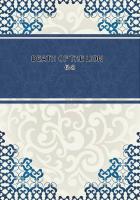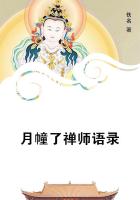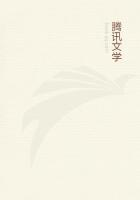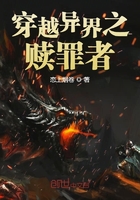8. The following account is given by Tacitus, concerning the state of the slaves among the ancient Germans. 'Gambling,' says he, speaking of that people, 'one may be surprised to find, they practice in all seriousness in their sober hours, with such recklessness in winning or losing that, when all else has failed, they stake personal liberty on the last and final throw: the loser faces voluntary slavery; though he be the younger and the stronger man, he suffers himself to be bound and sold; such is their persistence in wrong-doing, or in their good faith, as they themselves style it. Slaves so acquired they trade, in order to deliver themselves, as well as the slave, from the humiliation involved in such victory.
'Their other slaves are not organized in our fashion: that is, by a division of the services of life among them. Each of them remains master of his own house and home: the master requires from the slave as serf [colonus] a certain quantity of grain or cattle or clothing. The slave so far is subservient; but the other services of the household are discharged by the master's wife and children. To beat a slave and coerce him with hard labour and imprisonment is rare: if they are killed, it is not usually to preserve strict discipline, but in a fit of fury, like an enemy, except that there is no penalty to be paid.'
Tacitus, de mor. Germ. ?24, 25.
9. Potgiesserus, de statu servorum, lib. 2 cap. 1. 3, 4, 5. 9Ibid. cap. 10, ?. 7, 8. Ibid. lib.3,?.3, 10. Potgiesserus, de statu serv. lib. 2, cap. 1, ?24. A singular proof of the moderation of the masters in correcting their slaves, about this period, is mentioned by the same author, as follow:
'The punishment was, however, lenient in this way, that slaves might not be beaten with a stick wider and thicker than one veru (thickness of an arrow) as I remember having seen in the ancient parchment codex of Werdinensis.' Ibid.
11. See Dr Wallace, on the numbers of mankind.
12. The stock which is delivered by the master to his tenant goes under the name of 'steel-bow goods' in the law of Scotland. At the end of the lease the tenant is bound to restore the same in quantity and quality to the master.
13. Thus Onesimus, notwithstanding his conversion to Christianity, is understood by the apostle Paul to continue still the slave of Philemon; and it is not supposed that the master, who was also a Christian, was under an obligation to relinquish any part of his authority, far less to give liberty to his servant. See St Paul's epistle to Philemon. See also, to the same purpose, Rom. chap. xiii, ver. 1, etc. -- Ephes. chap. vi, ver.
5. -- Coloss. chap. iii, ver. 22.1 Tim. chap. vi, ver. 1, 2. --Tit. chap. ii, ver. 9, 10. -- 1 Pet. chap. ii, ver. 18. -- 1 Cor.
chap. vii, ver. 21, 22.
14. See the different decrees of councils referred to by Potgiesserus, de stat. serv. lib. 4, cap. 2, 4, 5. In one of these it is enacted, 'Episcopus liberos ex familiis ecclesiae, ad condemnationem suam facere non praesumat. Impium enim est, ut qui res suas ecclesiae Christi non contulit, damnum inferat, et ejus ecclesiae rem alienare contendat. Tales igitur libertos successor episcopus revocabit, quia eos non aequitas, sed improbitas absolvit.' [Or, freely translated, 'A bishop presumes to his condemnation to emancipate slaves from among families of the church. For it would be an impiety that one who has not conferred his own property upon the church of Christ should incur a loss to His Church by attempting to alienate her property. Therefore the bishop who succeeds him, will recall such freedmen because they were wrongfully rather than justfully set free.']
In another it is said, 'Mancipia monachis donata ab abbate non liceat manumitti. Injustum est enim, ut monachis quotidianum rurale opus facientibus, servi eorum libertatis otio potiantur.'
[Or in English, 'It is not permissable for an abbot to manumit slaves given to the monks. For it would be unjust that the slaves of monks should enjoy leisure in ******* while they themselves had to labour in the fields day after day.']
It is likely, however, that the clergy treated their slaves with greater lenity than was usual among the rest of the people.
Mention is made of a bishop of Arles, who, in conformity to the Mosaical institution, never allowed above thirty-nine stripes to be given, at one time, to any of his servants -- 'Solebat sanctus vir id accurate observare, ut nemo ex istis qui ipsi parebant, sive illi servi essent, sive ingenui, si pro culpa flagellandi essent, amplius triginta novem ictibus ferirentur. Si quis vero in gravi culpa deprehensus esset, permittebat quidem ut post paucos dies iterum vapularet, sed paucis.' [Or, translated, 'This saintly man was always very careful to see that none of his subjects, whether slave or free, should be given more than thirty-nine stripes in punishment for any offence. If the offence was a very serious one, he might be given additional stripes after a few days, but only a few.'] Ciprianus, in vita S.
Caefarii, Cit. Potgiess. lib. 2, cap. 1, ?6.
15. See observations on the statutes, chiefly the more ancient; 1Rich. II. A.D. 1377. Smith's Commonwealth of Eng. Bk. 3, chap.
10.
16. See Anderson's history of commerce, vol. 1, p. 336. -- The first importation of negro slaves into Hispaniola was in the year 1508. Ibid.
17. Mr Hume supposes that, in the above enumeration, none but heads of families, either of the slaves or free men, are included; from which it would follow that, throwing aside the strangers, the slaves exceeded the citizens nearly as twenty to one; and as this disproportion is highly incredible, he is of opinion that the number of slaves should be reduced to 40,000.
But the precise reduction to this number is entirely arbitrary;and upon the supposition which I have made, there will be no reason to suspect the account either of exaggeration or inaccuracy.
18. Dion. Hal. Antiq. Rom. Lib. 3.
19. By a late act of parliament such regulations have been made as, in a short time, will probably abolish the remains of that servitude to which this order of men have been so long subjected.
20. These observations were made about the year 1765, and relate more immediately to the parishes of Vere, Hanover, and St Thomas in the vale.
21. See American husbandry, published in 1775.
22. See a vindication of the address to the inhabitants of the British settlements on the slavery of the negroes in America, by a Pennsylvanian, printed at Philadelphia, 1773.
23. In the case of Somerset, the negro, decided in 1772.
24. Joseph Knight, a negro, against John Wedderburn, 15 January 1778.
the End















